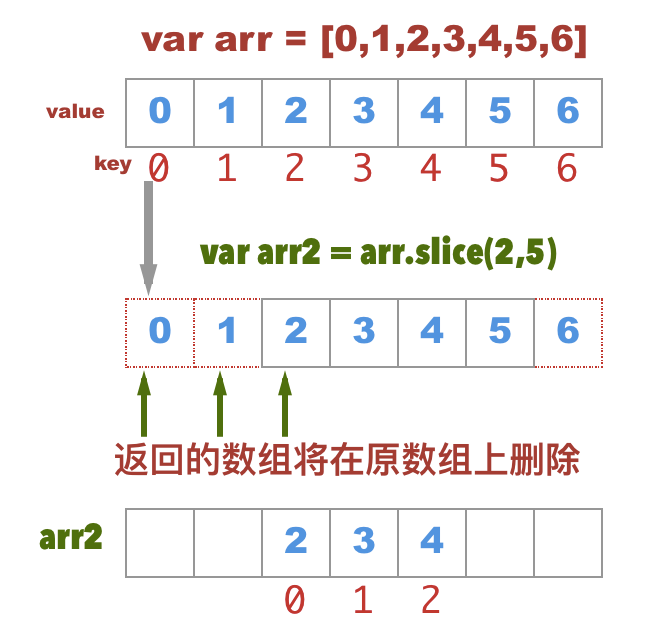


The slice() method takes the following parameters: It saves this copied portion into a new array but does not modify the original array. Using fineProperty(), we can attach accessors to an object that (mostly) recreate our negative array indexing access.The slice() method in JavaScript returns a shallow copy of an array’s selected portion.

It added support for getters and setters which allow you to define methods that control how specific properties are accessed. You could have almost, sort of, kind of accomplished this using old-fashioned JavaScript.Īnd by “old-fashioned,” I mean specifically ECMAScript 5.1 which was released in 2011. To implement it, you need to get creative. JavaScript unfortunately doesn’t support this syntax natively. Say that you were tired of writing array all of the time, and that you wanted to be able to simply write array instead. That’s pretty abstract, so let’s take a look at a concrete example. In a nutshell, proxies allow you to wrap objects in order to intercept and modify the behavior of certain actions–stuff like accessing properties and making function calls. They give you a level of flexibility that simply didn’t exist previously in JavaScript, and have allowed for projects like Remote Browser to become possible. That’s a real shame because proxies are pretty awesome. They were introduced by ECMAScript 2015 (ES6) several years ago, but they remain one of the less well-known features of the language. I’ve noticed that JavaScript proxies seem to have been getting an increasing amount of attention recently.


 0 kommentar(er)
0 kommentar(er)
